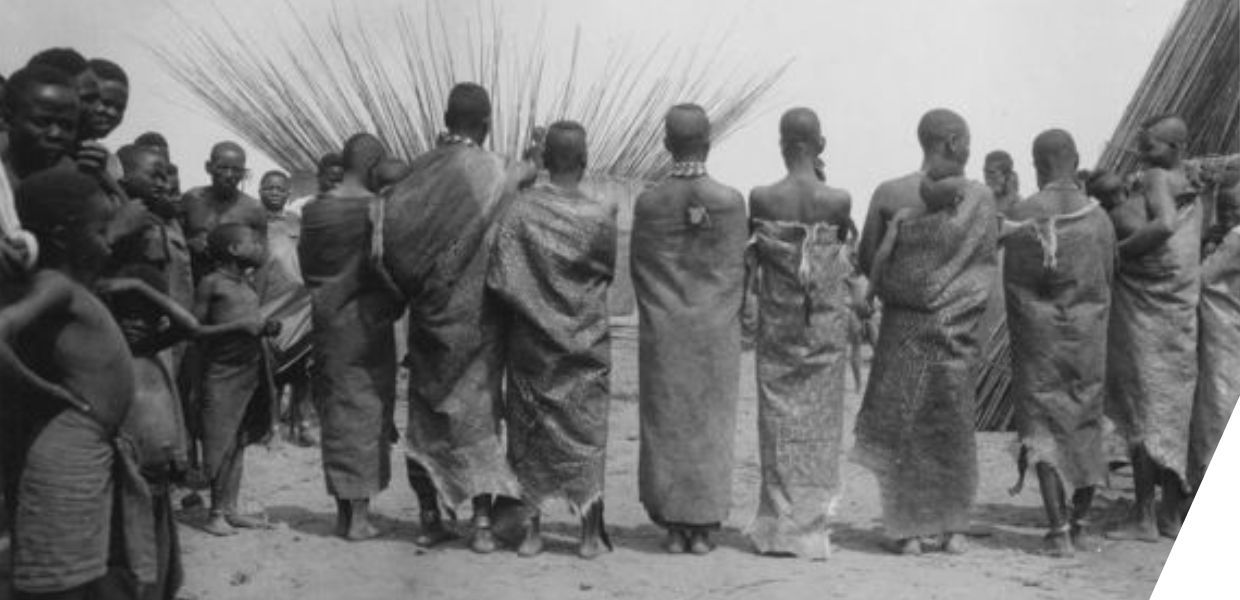Our mission as the Women’s History Museum of Zambia is to research, preserve and restore African indigenous knowledge and living histories focused on women. We introduce new cultural and historical knowledge through demystifying, popularising and functionalising indigenous knowledge (putting it into action in everyday contexts); and by setting an agenda for how African history on women is learned, consumed and functionalised. We use both digital and physical frameworks to reorient and decolonise the fragments of Zambian history focused on empowering women’s narratives.
In line with our mission to cultivate cultural heritage preservation, in 2021, the Women’s History Museum and The National Museums of World Cultures in Sweden joined forces to bring to life a collaborative project entitled Shared Histories.
Shared Histories is a collaborative digital platform centred around cultural object repatriation through digital means. It works to address the gap in cultural knowledge by providing and increasing accessibility to Zambian cultural objects which have, over centuries, found their way outside of their communities of origin and thus have been inaccessible to most. The experiences and contributions of owners of heritage and objects have been erased from the mainstream socio-economic and cultural history in Zambia as a result of the country’s colonial legacy and post-colonial tensions.
At the heart of the project is the goal to connect Zambian artists and the general Zambian population to Zambian historical artefacts and artwork held by the museum in Sweden. The museum currently holds 800 objects and artefacts collected over a period of 100 years.
Effects of colonialism
In our current sociocultural climate, Pan-African Consciousness is becoming more widespread across the continent. This sense of consciousness permeates across many frameworks of ideology and action. One such ideology is reclamation; the conscious act of revisiting, reframing and reabsorbing a particular way of thinking or being; a culture.
To this end, digital platforms are shifting the paradigm of identity and correcting historical asymmetries as they allow African people to be custodians of their own histories. Digital platforms and African communities in cyberspace reclaim agency by assuming the active role of the researcher or the archiver, in contrast to previously being the passive research subject or topic of archives.
Zambia was first subject to imperial conquest in 1888 when the British South Africa company secured mineral rights in the area. It subsequently became a British protectorate in 1899. Throughout our tumultuous colonial history, we have been a casualty in the displacement of artefacts, distortion of culture and the dilution of records by many imperialist missionaries and traders. The fabric of Zambian cultural identity has been hijacked, stolen and demonised. External intervention has created and continued to perpetuate disillusionment and a lack of understanding of the Zambian collective and the Zambian self. Zambia's identity has become muddied and fragmented. The lack of understanding could additionally be attributed to socio-economic problems, lack of infrastructure and the plaguing effects of neo-colonialism.
However, the rise of the digital era has helped to combat the lack of access to our histories and the instability and fracture in identity (especially within the younger generations), as digital frameworks foster African people regaining the keys to their cultural background. There is an urge to reclaim artefacts and champion communities within these histories who were disenfranchised and disregarded due to one tracked systems of knowledge production.
It is on this note that The Women's History Museum of Zambia assumed the position as a catalyst for change within the continent. We intend to continually shift the spaces of storytelling, identity and subsequently nation building through our institutional frameworks. Our research-driven projects actively combat the lack of awareness of these histories.
Digital restoration
The use of digital frameworks has brought a unity grounded in the accessibility of the internet and social media channels, which connect the African diaspora to a closeness never achieved before. Over the last couple of years, Africa has been subject to the most exponential growth rates in internet penetration and therefore in the use of the internet. Statistics given in a report collated by We are Social, show that the number of internet users across the continent saw an increase of more than 20% in 2018. The number of people with access to the internet in Mali increased sixfold since January 2017 and doubled in countries like Mozambique, Benin and Sierra Leone (S. Kemp, 2022).
The increase in rates of internet penetration on the continent can be attributed to diverse technological trends, initiatives and developments, for example, the continued cost reduction in computing and communication capabilities and access to cheap smartphones and mobile data. This being said, it is crucial to acknowledge the existing gaps which are still present within the use of digital frameworks as decolonial tools.
A planned extension of the Shared Histories project is the facilitation of technology literacy workshops in remote areas of the country, which can be said to have high concentrations of relevant living histories.
Imagining the future
As The Women’s History Museum of Zambia we imagine a future of equity and one of a rejuvenated sense of collective and individual identities, without the overbearing sense of external intervention. A future of Zambian histories written by Zambian people.
If you wish to empower our projects and further enrich the cultural understanding of Zambian history within our communities, please donate. If you’d like to learn more about our mission, Zambian histories, any of the projects mentioned within our pieces, or keep up to date with our endeavours, please explore our website and follow our social media, including our Twitter, Facebook, Instagram, and Shared Histories Instagram.



